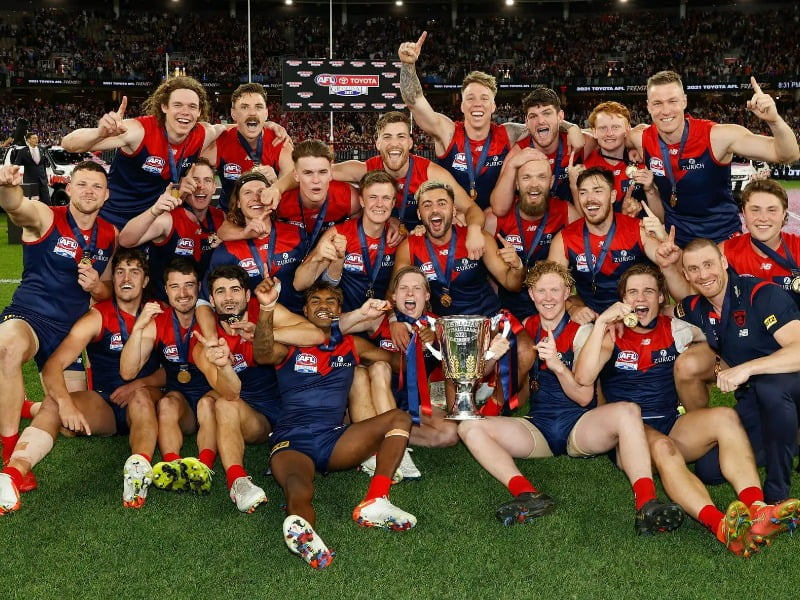The AFL has warned that the federal government’s new online safety laws are unlikely help to prevent serious incidents of online abuse and racism directed at its players and more systemic change is needed.
Mental health and inclusion leaders from the AFL on Tuesday told lawmakers its players are showing signs of psychological trauma because of increasing online abuse, often directed at its Indigenous and female players and their families.
The sports body is working with Australia’s eSafety Commissioner and platforms like Facebook and Twitter to stop the abuse, but warned it is having difficulty because of online anonymity and the way Australia’s regulatory approach relies on victims making complaints.

“The onus is still on the victim to have the psychological capacity, readiness and energy, and trust in the system, to meet any kind of resolution,” AFL head of mental health and wellbeing Dr Kate Hall told the current parliamentary inquiry into Social Media and Online Safety.
“That’s not a very victim-centric or survivor-centric mindset. It doesn’t empower people, particularly in our industry, to act, even though they’re not bystanders; they do stand up and support each other.”
The AFL has developed a “very positive” relationship with online regulator the eSafety Commissioner, which has sped up the take down of abusive content in cooperation with the platforms.
The commissioner’s powers expanded this month with the introduction of a controversial Online Safety Act, but the process for reporting abuse is “cumbersome” and the challenge is more systemic, AFL executive general manager of inclusion and social policy Tanya Hosch told the committee.
“That combination of effort not only is incredibly time-consuming and cumbersome but frequently leads us to a dead end because of the identities not being known to us,” Ms Hosch said.
“Even if they are members of an AFL club, we won’t necessarily know that. Sometimes they will repeat the behaviour towards particular players or individuals through various identities that they set up. That is a constant frustration.”
Ms Hosch said the AFL is losing confidence in reporting the most serious incidents to police as well, even though the abuse can be seen as a criminal act when it promotes physical and sexual violence.
“The other thing is that we don’t have a lot of confidence in the system anymore. Asking players, who really are left to make the decision, to go and report an incident to the police themselves becomes very, very difficult,” she said.
Last year the partner of an Indigenous player was subject to “egregious” online abuse promoting physical and sexual violence though direct Instagram messages. The platform could not remove it because it was a direct message not a post, Ms Hosch said, and the victim was not willing or able to make a police report.
“No matter how much support we tried to offer and other players offered to this particular individual, they weren’t willing to go and report it to the police, which is really the last resort. It seems to us that there have to be other ways to deal with that,” she said.
Asked if the new Online Safety Act would help, Ms Hosch said she was hopeful but it would not change the need for a victim to make a complaint. The most pressing issue remains the anonymity of the abusers online, and the platforms should be doing more to police the communities, she said.
“I think the biggest difficulty is the fake accounts and the ability of people to set up online accounts without having to reveal their own personal identities. It means that it can often be incredibly hard to trace these people,” Ms Hosch said
The federal government is currently consulting on its proposed Social Media Anti-Trolling Bill. Despite being pitched by the Prime Minister as a way to curb online trolls, the legislation actually focuses on defamation.
The bill would enable those who believe they have been defamed to identify anonymous posters of the material via a court order, and reverse the High Court’s Voller decision that administrators of social media pages are liable for defamatory comments posted by third parties.
The proposal has been slammed by legal experts and the Attorney General’s Department last week admitted the bill has little to do with stopping abusive online trolls.
Do you know more? Contact James Riley via Email.

